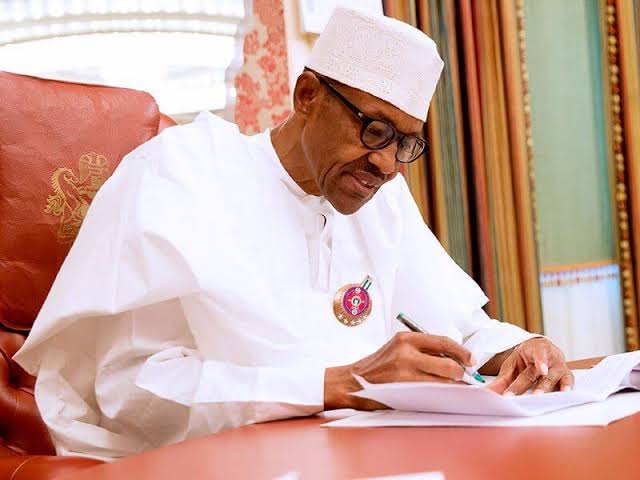In a move, obviously meant to begin clearing his tables preparatory to the handover next month, President Muhammadu Buhari recently assented to 19 out of the 35 bills transmitted to him by the ninth National Assembly. Out of the 19 bills, 16 were various amendments to Nigeria’s 1999 Constitution, as amended.
The signing of the bills, appropriately titled “Constitutional Alteration Bills,” marked a significant development in the nation’s polity in that some of them addressed aspects of the constitution that have been of concern to many Nigerians. The bills sent to the president included that for local government councils.
The bills signed by the president altered certain constitutional arrangements by devolving power from the centre to the federating units, or states, as they are recognised in the constitution. One of these bills moved the item “railways” from the Exclusive Legislative List to the Concurrent Legislative List. With this, the states can now build and operate railways.
A similar alteration also devolved power to the states in the energy sector, allowing them to generate, transmit and distribute electricity in areas covered by the national grid.
Another bill is the one that provides for the financial independence or autonomy of state houses of assembly and state judiciary and related matters. This is autonomy for the second tier of government in the country, which again addresses one of the demands that have been made by stakeholders in the states.
The president also signed the bill that seeks to delete “prisons” from the Exclusive Legislative List and re-designate it as “Correctional Services” in the Concurrent Legislative List, which means that the states can now also establish such services.
Another bill that he assented to is the one that requires the president and governors to submit the names of persons nominated as ministers or commissioners within 60 days of taking the oath of office for confirmation by the Senate or state house of assembly.
He also signed a bill that requires the government to direct its policy towards ensuring the right to food and food security in the country.
Daily Trust welcomes the signing of these bills and declares that this is a victory for the states and ordinary Nigerians who have been shortchanged by the system that has subsisted thus far.
An obvious defect in the 1999 constitution, as various commentators have pointed out, is the concentration of powers, both political and economic, at the centre, leaving the federating units or states, as mere fringe players in the scheme of things. This has been the crux of the calls for restructuring, a process of devolution of powers to the subnational units.
The calls have included the demand for the economic space to be widened to accommodate more participation by the states to ensure their economic viability as the second tier of government in the country.
As constituted currently, many of the states are not viable, and cannot stand on their own without the monthly revenue allocation from the Federation Account.
Furthermore, we commend the relaxation of the constitutional provisions on railway services, and the generation, transmission and distribution of electricity to accommodate the states. By opening up these areas of economic activities to the states, these legislations have given them an opportunity to participate actively in these sectors of the economy that have so much potential to turn around their fortunes. With the dearth of infrastructure and its visible impact on the economy, the states certainly stand a chance of making reasonable returns from investments in these areas to augment their current low revenues.
It is now up to the states to take advantage of these opportunities by investing in these areas.
On the financial autonomy for the state Houses of Assembly and Judiciary, we believe this will help the state legislators to be independent. What we have at the moment is a disaster, as these branches of government are currently in the pockets of governors and, as such, cannot assert their autonomy and independence.
With the governors effectively in control of the finances of these two arms of government at the state level, the executive arm had usurped the powers that ordinarily should reside in the legislature and the judiciary. We believe, therefore, that this development will ensure the practice of the separation of powers at the state level.
That a time frame has been stipulated for nominating ministers and commissioners is indeed great, as this will cause all elected persons to hit the ground running. Daily Trust urges the president to take a look at any other bill or bills on his desk and see which among them deserves to be considered for possible assent before the end of his administration.

 Join Daily Trust WhatsApp Community For Quick Access To News and Happenings Around You.
Join Daily Trust WhatsApp Community For Quick Access To News and Happenings Around You.


